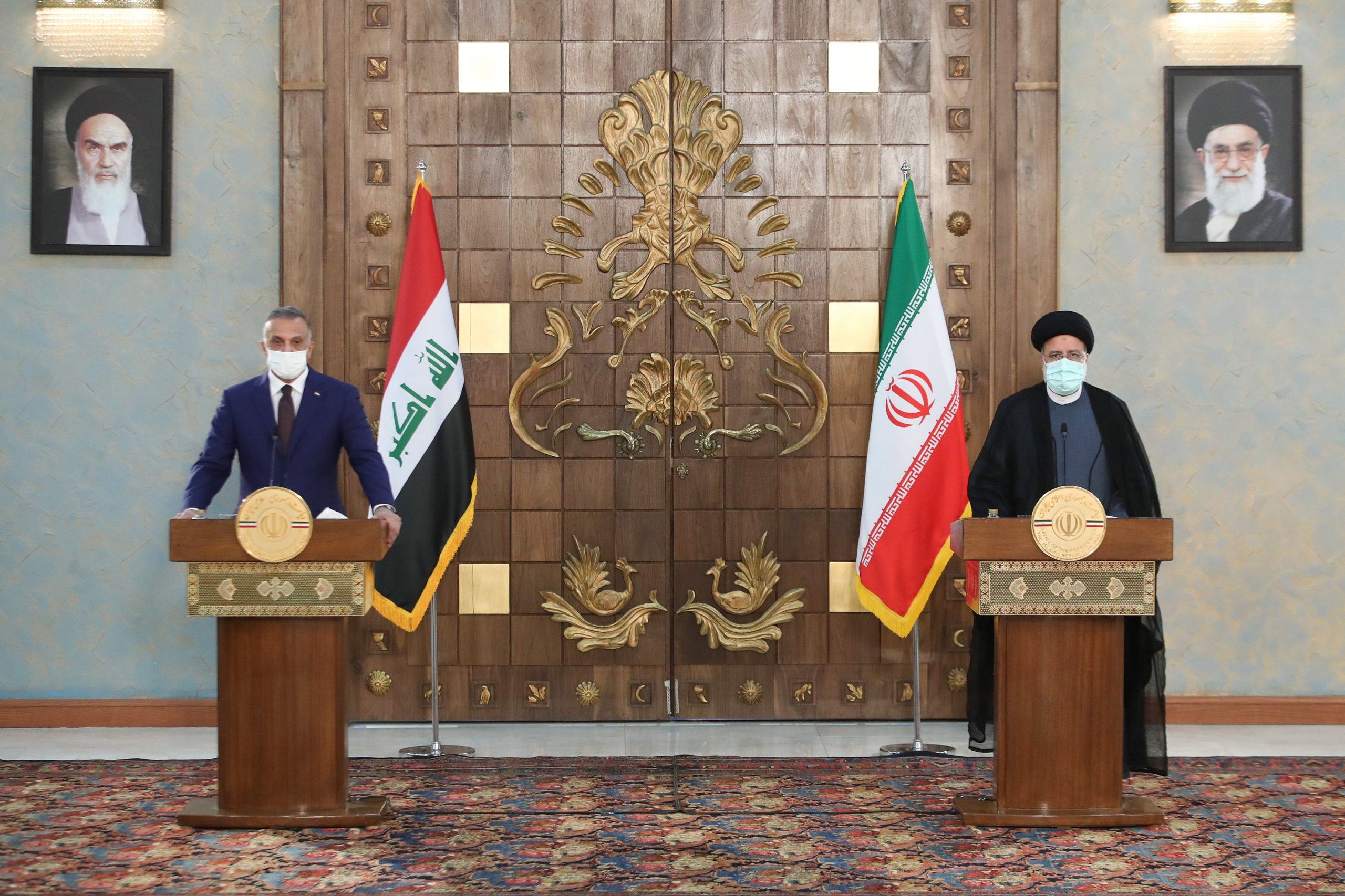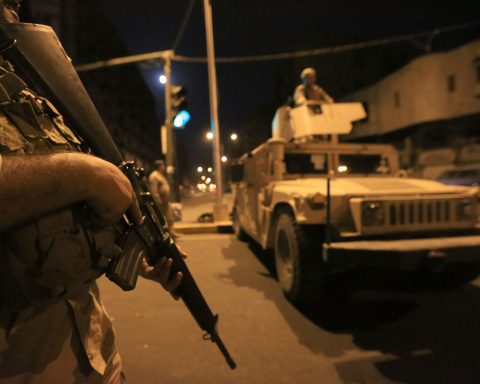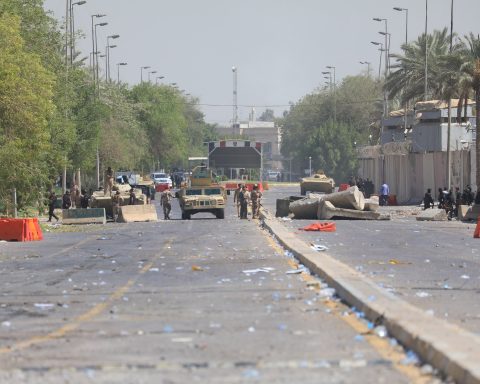Iraqi Prime Minister Mustafa al-Kadhimi arrived in Tehran on Sunday to discuss and strengthen bilateral relations between the two countries.
Al-Kadhimi’s visit marks the first time a head of government has visited the Iranian President since Raisi’s inauguration ceremony on August 5. The duo headed a joint session between Iraqi and Iranian delegations to discuss ways to improve economic and trade relations.
Following the bilateral talks, President Raisi confirmed that he came to an agreement with the Iraqi PM to lift visa restrictions between the two countries. The agreement aims to expand the number of Iranian Shia pilgrims who visit the city of Karbala to observe Arbaeen every year. For his part, President Raisi thanked PM al-Kadhimi for agreeing to facilitate the removal of visa restrictions.
During his visit, PM al-Kadhimi reportedly aimed to follow up on the Baghdad Conference that took place on August 28. The conference had aimed to provide a platform to ease regional tensions, including the Saudi-Iranian rivalry. Amer al-Fayez, a ranking member of the Parliamentary Committee for Foreign Relations, described PM al-Kadhimi’s visit as “a sequel of a series of exchanged visits between Iranian and Iraqi officials.”
Al-Kadhimi also sought to arrange a meeting between Saudi and Iranian Foreign Ministers in Baghdad as a continuation of Saudi-Iranian talks, according to pro-Iran Tehran Times. A ministerial meeting is seen as a natural next step for a possible rapprochement. The two sides did not meet on the sidelines during the Baghdad Conference despite ministerial participation.
The positive tone surrounding al-Kadhimi’s Tehran visit was overshadowed by Iran’s recent escalation against Kurdish opposition groups located along the Iran-Iraq border. Particularly, the presence of the Kurdistan Democratic Party-Iran (KDPI) was a sticking point in al-Kadhimi’s meetings with Iranian officials.
The Secretary of the Supreme National Security Council of Iran, Ali Shamkhani, reportedly urged PM al-Kadhimi to “promptly remove” Kurdish opposition groups hostile to Iran. “The disarmament and removal of hostile groups are crucial” he reportedly said.
The Secretary’s stern words came as Iranian forces hit multiple locations under the control of the Kurdish Regional Government (KRG) targeting the Kurdistan Democratic Party Iran’s (KDP-I) outposts in the region.
Sidakan, Haji Omran, and Choman areas came under bombardment by Iranian tanks, drones, and air forces in four consecutive days since September 9th. While no loss of life was recorded as a result of the attacks, officials say agricultural areas and personal property were damaged.
KDP-I is a Kurdish oppositional party founded in the northwestern city of Mahabad in 1946. The party maintains a low-intensity armed resistance against the Iranian state and has been categorized as a terrorist group by Iran. The group tends to avoid launching attacks into Iran from the KRG since it was forced out of Iran in the early 1990s, according to Beirut-based journalist Idris Okuducu.
Last week’s escalation follows the assassination of a senior KDP-I member, Musa Babakhani, in Erbil on August 7. KDP-I had blamed Iranian agents for Babakhani’s killing.
The Iranian government ratcheted up pressure on both Erbil and Baghdad after the Biden administration announced its decision to end the US combat mission in Iraq on July 26. Capitalizing on the US exit from Iraq, Iran may try to establish a more significant presence in the KRG. While Iran has extended its presence in Baghdad-controlled areas of Iraq thanks to its proxies in Iraq, it often felt short of doing so in the KRG. The latest string of attacks and assassinations of Kurdish dissidents as the United States looks to draw down its military presence may point to a further Iranian influence in the region.














